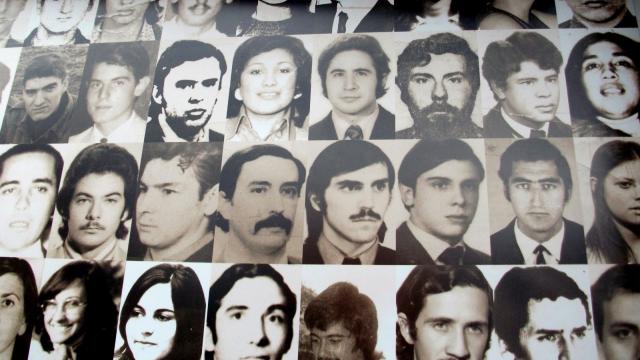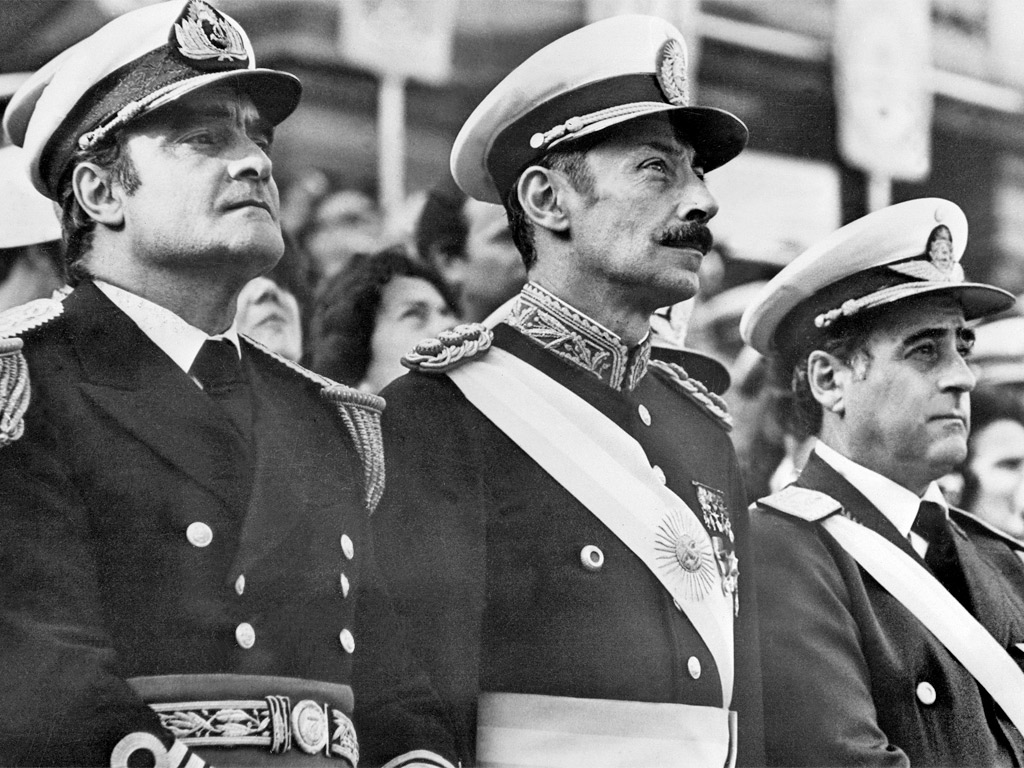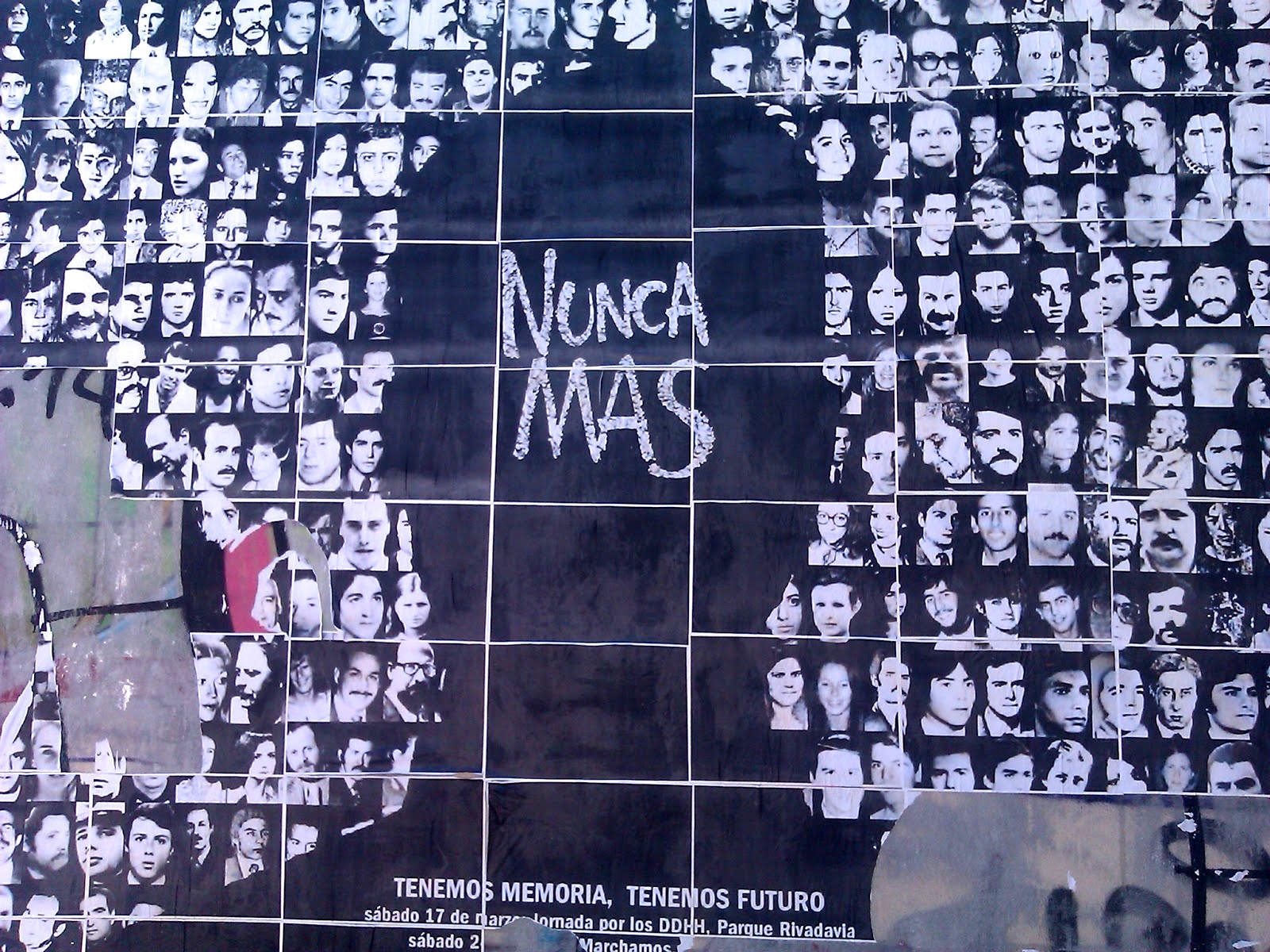
A judge previously rewarded by the Argentine Congress for his objectivity ruling in a crimes against humanity case now stands trial for committing minor procedural errors during one of the cases – an accusation he says is punishment for his indifference to political pressure during the rulings.
In 2012, Judge German Castelli ruled against 18 perpetrators accused of torture, murder and enforced disappearances at Argentina's most sophisticated clandestine detention center – the Buenos Aires Navy School of Mechanics, or ESMA – during the military dictatorship from 1976 to 1983.
Now, Castelli is being accused of negligence by the Council of Magistrates, a federal body created to appoint judges, protect their independence and sanction or remove them if deemed necessary.
“I am dismayed that a threat of this nature would be brought against me by the body that is meant to safeguard my independence,” said Castelli, who has been a judge for more than a decade. In 2012, Castelli and two colleagues ruled over the case of Juan Antonio Azic, a former guard at ESMA who kidnapped and illegally adopted the baby of a woman who disappeared at the hands of the military.
The baby, Carla Ruiz Dameri, grew up with Azic as her adoptive father and, as a grown woman during his trial, she requested he be granted bail to attend her wedding. The judges granted the request based on national laws that permit the accused to “fulfill their moral duties".
The ruling was criticized by the politically powerful Abuelas de Plaza de Mayo, a Buenos Aires-based human rights NGO campaigning to reunite biological families and prosecute those who stole children during the military reign. Although the allegation was defended and then dropped in 2012, the charges were recently reignited by the Council of Magistrates based on minor procedural errors allegedly made in the run-up to the decision.
The administration of President Cristina Fernández de Kirchner has repeatedly come under fire for its attempts to undermine the independence of the judiciary, and Castelli's case is just one example of the punishment awarded to judges who fail to respond to political pressure.
“Today we observe the frequent displacement of these actors [judges] that should have more protection in their work,” said Pablo Secchi, the executive director of Poder Ciudadano, the Argentine chapter of Transparency International which monitors corruption in the corporate and political arenas.
In recent years, human rights watchdogs and the UN Office of the High Commissioner for Human Rights have repeatedly questioned whether the Argentine government is overstepping its bounds with reforms to “democratize justice,” as President Kirchner calls it – which risks creating a faux justice system that grants impunity to government actors while remaining vulnerable to political and public pressure.
Due Process As A Mark of Democracy
When Ruiz-Dameri requested to Castelli and his colleagues that Azic be allowed to attend her wedding, the judges tried to disassociate their decision – which they said they wanted based on due process and basic criminal rights – from the horrified popular sentiment that suffocated the courtroom during each trial.
“We often had to tell people in the courtroom to be quiet. Often they applauded and cheered on witnesses, with the potential to disrupt the balance of the judgment,” said Castelli. “We had to make a decision about Azic. If for some unfathomable mystery of the human soul, an adult with all the freedoms a human being is entitled to – who has been the victim of a terrible crime [kidnapping] – loves the person who illegally adopted her and wants to invite him to her wedding, how can we as judges in a democracy intervene?”
The unpopular decision was instantly reflected in news headlines that day on Página/12, a popular national newspaper, which wrote: “An oppressor has been benefited.”
“The Court has assumed the task of facilitating and encouraging relationships, far from family, [which] has its origins in a very serious crime," stated Estela Barnes de Carlotto, the head of the Abuelas, in her written denunciation of the judges' ruling in 2012.
The Abuelas' complaint also provoked the intervention by a federal court judge— whose permission was also needed to approve Azic's temporary release— and who chose to deny it.
“Perhaps, we were too independent during the trial, or we were not reliable in the eyes of Estela de Carlotto [whose organization served as a plaintiff for almost every war crimes case]. Or perhaps there was just something in the judgment that she didn't like,” said Castelli.
The complaint against the judges was filed only 48 hours before their verdict on the case was to be announced, creating significant pressure on them to make a decision favorable to the Abuelas. In the end, Azic was sentenced to 18 years in prison by the majority.
While the Abuelas' concept of justice included harsh sentences for perpetrators of crimes against humanity, the role of the Council of Magistrates is to set limits on the ability of civil society to interfere in those judgments, according to legal experts.
“Security of tenure is key to ensure that judges can adopt independent decisions, without fear of suffering reprisals for rulings that may upset politicians or powerful individuals in a given context,” said José Miguel Vivanco, the director of Human Rights Watch's Americas division.
Yet the main charge brought against the judges by the Abuelas in 2012 is sidelined in the current complaint brought by the Council of the Magistrates. In the backdrop of government efforts to reduce the independence of the judiciary in the past few years, the current charges appear to Castelli to be an arbitrary mask for other motives.
“In this Kafkaesque drama, I am not even sure of what exactly I am being accused of,” said Castelli, who was one of the first Argentine judges to rule over the prosecution of crimes against humanity during the Dirty War. The crimes were brought back to the courts after a quarter of a century of amnesty for those who operated the brutal ESMA killing center.
Of the 18 cases that Castelli presided over, 12 defendants received life imprisonment, four were dealt heavy prison sentences and two were acquitted. In addition, Castelli submitted a request to the Supreme Court asking it to appeal to the UN to include political murders in the definition of crimes against humanity, as outlined by the UN's Convention for the Prevention and Punishment of the Crime of Genocide.
As many as 30,000 people in Argentina were murdered by the military junta for political reasons. But despite the gravity of crimes committed by the military generals and their civil accomplices, legal experts maintain that equality and due process for the accused is a fundamental tenet of the Universal Declaration of Human Rights, as well as other international human rights laws.
Analysts say that the true mark of a democratic society rests on equal treatment for crimes, as well as “the treatment of the accused in alignment with the principles of human rights and the constitution regardless of the crime they are accused of,” Hector E. Schamis, an adjunct professor at Georgetown University's Center for Latin American Studies, said at a 2013 conference for the Center for Strategic and International Studies.
The role of the judiciary is to make decisions in the most unbiased way possible, stressed Human Rights Watch. “Without such independence, judges would not be able to adopt unpopular decisions that are necessary in a democratic society to protect basic rights,” said Vivanco.
If Castelli and his two colleagues are sanctioned based on the pretext of technical error, “the message spreads to other federal judges in the country, especially those who judge crimes against humanity,” wrote Castelli in an appeal submitted in April to the UN Special Rapporteur on the Independence of Judges and Lawyers, Gabriela Knaul.
Last year, Knaul, on behalf of the UN High Commissioner for Human Rights, issued a public complaint against the moves of the Argentine government to undercut judges countrywide.
“I call on Argentina to establish clear procedures and objective criteria for the dismissal and punishment of judges, and to ensure an effective process through which judges can challenge those decisions in order to safeguard judicial independence,” Knaul said in a statement issued in April of 2013.
“There could be no other reason to bring these charges now, except I suspect that we were too independent, and the Council has brought this unwarranted complaint against us to exert pressure,” Castelli added. Reforms to Democratize Justice
Castelli's case is only one symptom of a wider movement by the government of Cristina Kirchner to reign in the judiciary. In May of last year, President Kirchner attempted to introduce six reforms to the Council of Magistrates that would grant the majority government power over nominations of Council members.
Currently, the Council is comprised of lawyers, academics, judges and lawmakers are who nominated by judges to the seats.
But if government controls the Council, the justice system will no longer be able to keep power of the ruling party in check, explained Human Rights Watch's Vivanco.
“Controlling the judiciary is a way of ensuring impunity,” said Poder Ciudadano’s Secchi. “A judge who is conditioned in his decisions can hardly do his job properly.”
3 WAYS TO SHOW YOUR SUPPORT
- Log in to post comments













